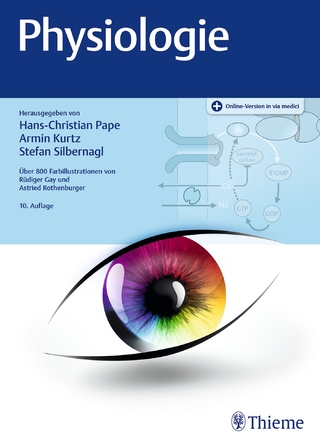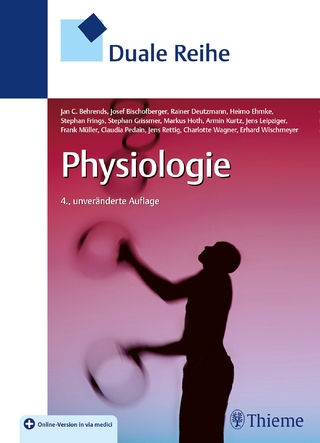
Functional Electromechanical Dynamometry
Routledge (Verlag)
978-1-032-54498-4 (ISBN)
- Noch nicht erschienen (ca. März 2025)
- Versandkostenfrei innerhalb Deutschlands
- Auch auf Rechnung
- Verfügbarkeit in der Filiale vor Ort prüfen
- Artikel merken
Human strength testing has advanced as technology has evolved; from evaluating strength in a general and unspecialized way through to more scientific methods being applied to help performance and prevent injury. Functional Electromechanical Dynamometry: Applications for Health and Sports Performance continues this evolution by developing and presenting applications in the assessment and training of strength in humans, broadening the scope of information available to physical therapists, coaches, and physical trainers specializing in strength training.
Many of the current testing and training protocols are empirically based, with their roots in clinical medicine. They have been developed based on what the technology of the time allowed. With the application of new technologies, functional electromechanical dynamometry (FEMD), inertial devices and mobile apps, etc. has seen the introduction of new testing protocols that outline how to assess strength in performance and the importance of muscle quality in injury prevention and treatment. Knowing how FEMDs work allows coaches, researchers and health personnel to improve diagnoses and treatments for athletes and non-athletes and be able to better measure the stresses of the tasks that occur in everyday life, whether in daily activities or sports performance.
This new research book is key reading for sports science students, researchers and academics and of specific relevance to those in the strength and conditioning or physiology fields as well as to anyone who wants to assess and improve musculoskeletal strength and muscle quality in humans.
Ángela Rodríguez Perea is a Doctor in Biomedicine from the University of Granada, Spain and she holds a bachelor’s degree in physical activity and sports sciences, an MSc in physical activity and sports research at the University of Granada, Spain and an MSc in Secondary Education with a specialization in Physical Education. Her research specialty interests are strength assessment, low back pain, core strength training, sports performance, and handball. Currently, she is a postdoctoral researcher in the Department of Physical Education and Sports, Faculty of Sports Science, University of Granada (Granada, Spain). She is a member of the Pleokinetic Research Network and the IDAFISAD CTS-642 research group at the University of Granada, Spain. Ignacio J. Chirosa Rios is a tenured Professor in Physical Education and Sports at the University of Granada, Spain. His research focuses on the evaluation and development of muscular strength and functional electromyographic dynamometry (FEMD). Ignacio has published over 110 peer-reviewed journal articles, 14 Ph.D. theses, and contributed to several research projects, about strength training applied to different populations from elite athletes to the elderly, including two as the principal investigator. He is actively involved in technology transfer, with multiple patents related to sports performance assessment tools, including a platform for FEMD. Ignacio also plays a significant role in academic leadership, coordinating doctoral programs and official master’s programs at the University of Granada. He has been instrumental in creating international dynamometry laboratories across various countries, enhancing global research collaboration.
Section 1: Fundamentals of Strength Training
1. Introduction to Muscle Strength and Force in Sports Science.
2. Expressions of Force
3. Validity and Reliability of Evaluation with FEMD
4. Methodology of Training with FEMD
Section 2: Assessing Strength in Sport Specific Tasks
5. Dynamometric Technology: Revolutionizing Evaluation and Training in Team Sports
6. Assessment of Strength in Sports Tasks
7. Training Proposal to Improve Strength in Sports Tasks
Section 3: Strength Assessment for Health and Well-being
8. Relevant Variables in the Assessment of Strength in Health
9. Evaluation of Muscle Quality
10. Training Programmes for Health and Quality of Life
11. Musculoskeletal Injuries and Muscle Quality
| Erscheint lt. Verlag | 28.3.2025 |
|---|---|
| Reihe/Serie | Routledge Research in Strength and Conditioning |
| Zusatzinfo | 9 Tables, black and white; 18 Illustrations, black and white |
| Verlagsort | London |
| Sprache | englisch |
| Maße | 138 x 216 mm |
| Themenwelt | Studium ► 1. Studienabschnitt (Vorklinik) ► Physiologie |
| Weitere Fachgebiete ► Sportwissenschaft | |
| ISBN-10 | 1-032-54498-8 / 1032544988 |
| ISBN-13 | 978-1-032-54498-4 / 9781032544984 |
| Zustand | Neuware |
| Haben Sie eine Frage zum Produkt? |
aus dem Bereich


